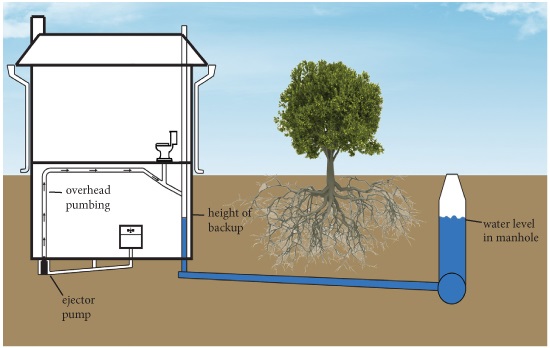Sewer Backup Prevention - Options for Homeowners
During periods of extreme rainfall, infiltration and flooding can cause sewage from sanitary sewer lines to back up into homes and businesses. These backups not only cause damage that is difficult and expensive to repair, but also create health hazards.
Reduce Your Risk
There are a number of ways a property owner can help prevent a sanitary sewer backup:
- Checkvalve
- Floor drain plug
- Floor drain standpipe
- Overhead sewer
Consult a Professional
Always consult a professional plumber and/or engineer before installing any back-flow prevention method on your property.
Typical Residential Service Connection
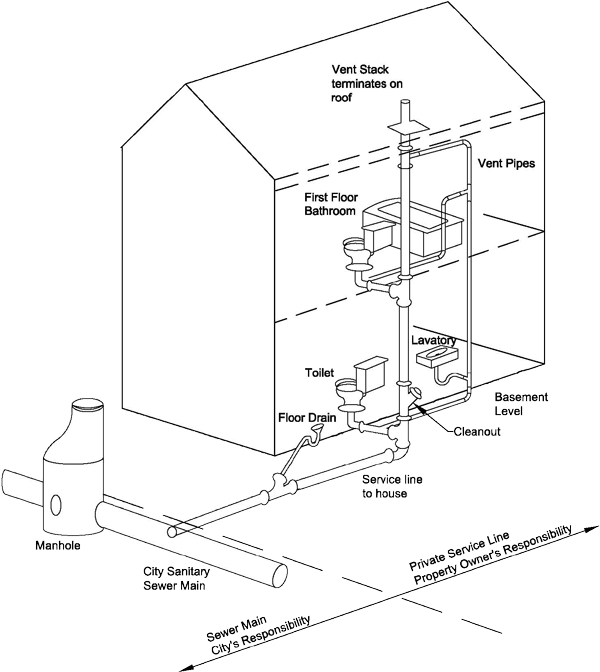
Know Your Sanitary Sewer System
The above diagram shows the typical residential service connection. Maintenance for the sanitary sewer main is the city’s responsibility, while private service lines that connect homes and businesses to the main are the property owner’s responsibility.
Properly maintaining your private service line and taking preventative measures can reduce the risk of sanitary sewer backup into your home or business.
Checkvalve
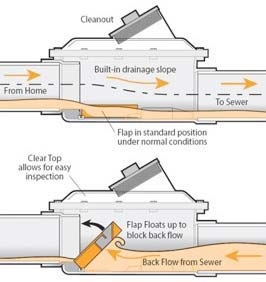 A checkvalve is designed to allow sewage to only flow in one direction. If there is a backflow from the sanitary sewer, the checkvalve will prevent it from going into your home.
A checkvalve is designed to allow sewage to only flow in one direction. If there is a backflow from the sanitary sewer, the checkvalve will prevent it from going into your home.
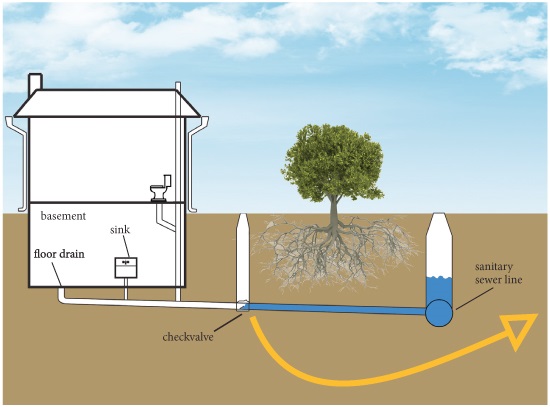
Floor Drain Plug
A floor drain plug is one of the simplest and least expensive ways to block the flow of sewage, but will only be effective until the the sewage level rises up to the level of the next opening, probably a shower, toilet or sink. A floor drain plug may also cause damage to the floor in certain instances due to uplift pressure.
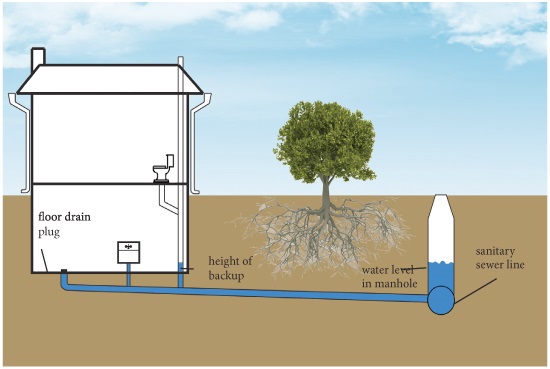
Floor Drain Standpipe
A floor drain standpipe is another simple and inexpensive way to prevent sanitary sewer backups. However, the standpipe will only be effective until the sewage rises up to the level of the next opening, probably a shower, toilet or sink.
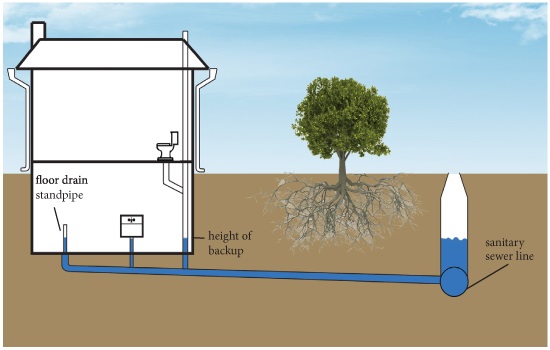
Overhead Sewer
With an overhead sewer, there are no direct openings to the sanitary sewer in the basement. All of the wastewater is collected into an ejector pump pit and pumped into the sanitary service line from plumbing that is just below the basement ceiling.
